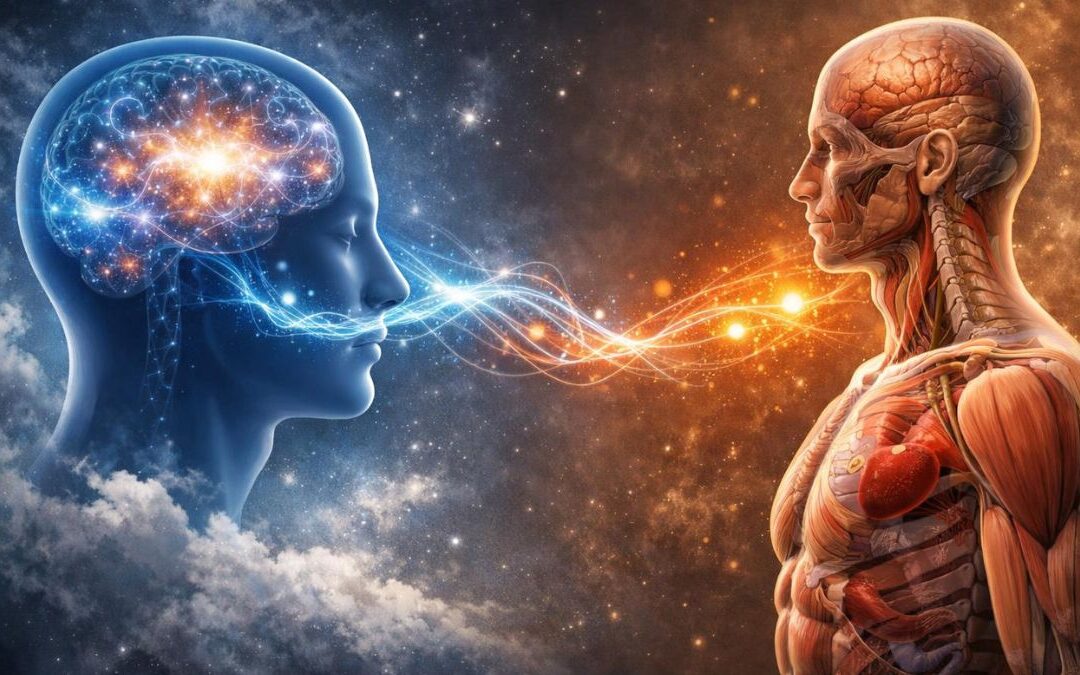Have you ever stopped to think about the weight of a single word? Not in a poetic, abstract sense, but its actual, physical-feeling weight in the world. What’s the psychological difference between calling financial aid a “handout” versus a “lifeline,” or an “entitlement” versus an “investment?” Does our choice of words simply describe a situation, or does it actively create the reality we perceive? We’re going to get into the intricate, often invisible connection between language and poverty, and how the very grammar we use can become a tool for judgment, building walls that are far harder to tear down than any made of brick and mortar.
We’re not talking about the obvious stuff. It’s easy to point a finger at the overt, nasty slurs used to dehumanize people—the words spat with venom that we all agree are out of bounds. That’s low-hanging fruit. The conversation gets far more interesting, and frankly, more uncomfortable, when we start dissecting the words we use every day. The respectable words. The clinical, bureaucratic, and sometimes even well-intentioned words that quietly do the dirty work of sorting humanity into neat, manageable piles.
Let’s start with a classic: “handout.” The word itself feels limp, passive. It paints a picture of a person with their palm upturned, waiting, contributing nothing. The transaction is one-directional. I, the person with resources, am handing something out to you, the person without. It’s an act of charity, which sounds nice, but buried within it is a power dynamic as old as time. It implies a gift, not a right, and gifts can be withheld. They can be given with strings attached, with a silent expectation of gratitude, or even deference. A handout is given from a position of height; it requires someone to look down and someone to look up.
Now, let’s swap it. What if we called it a “lifeline”? A lifeline isn’t a gift; it’s a necessity. You throw a lifeline to someone who is drowning. The act isn’t about your generosity; it’s about their survival. The focus shifts entirely from the giver’s magnanimity to the receiver’s humanity. Or consider a “hand-up.” This is different still. A hand-up isn’t about passive receiving; it implies partnership. It’s a temporary boost to help someone get back on their own two feet. It respects their agency, their inherent ability to climb, if only they can get some traction. Handout, lifeline, hand-up. Three ways to describe a similar transfer of resources, but they create three entirely different psychological worlds. One builds a wall of dependency and judgment, while the others build a bridge of shared humanity and potential.
This brings us to another loaded term: “entitlement.” Oh, boy. That word has been weaponized into one of the most potent slurs in the socio-political lexicon. To call something an entitlement is to suggest it’s unearned, demanded, a symptom of a spoiled, grasping nature. The word drips with accusation. It frames social safety nets—things like unemployment benefits, food assistance, or healthcare—not as pillars of a compassionate society, but as cracks in its moral foundation, through which the lazy and undeserving crawl.
But what if we called it an “investment”?
Suddenly, the whole picture changes. An investment is not a cost; it’s a strategic allocation of resources for a future return. When a child from a low-income family gets access to nutritious food, that’s not an entitlement. That’s an investment in a future doctor, or engineer, or artist. It’s an investment in a healthier, more productive citizen who will pay taxes, innovate, and contribute back to the very society that supported them. When a person who lost their job gets unemployment benefits, allowing them to search for a new one without losing their home, that’s an investment in economic stability. It prevents a downward spiral that would cost society far more in the long run. The word “entitlement” frames people as a liability, a drain. The word “investment” frames them as an asset, a source of untapped potential. One is a dead end. The other is a beginning.
Perhaps the most fundamental linguistic trap we fall into is how we refer to the people themselves. We talk about “the poor.” It sounds so simple, so descriptive. But it’s a monster of a phrase. It’s a monolithic label that erases individuality. “The poor” become a faceless, uniform mass—a problem to be studied, managed, or fixed. They are no longer millions of individuals, each with a name, a history, a complex web of reasons for their circumstances. They are just… them. An other. A category.
Contrast that with “people experiencing poverty.” It’s a bit clunkier, sure. It doesn’t roll off the tongue as easily. But that clunkiness is precisely its power. It forces us to slow down and think. First and foremost, it puts the person first. It reminds us that we are talking about human beings. Second, it frames poverty as a condition, an experience, something that is happening to them, not an intrinsic part of their identity. You wouldn’t call someone with a temporary illness “the sick.” You’d say they are a person experiencing an illness. The distinction is vital. An identity is fixed. A condition can be changed. One invites judgment and resignation; the other invites compassion and action.
This grammar of judgment reaches its ugliest, most insidious peak with the quiet sorting of people into two camps: the “deserving” and the “undeserving.” This is the moral calculus we use to make ourselves feel better about inequality. We create a silent checklist. The single mother working two minimum-wage jobs to feed her kids? Okay, she’s deserving. The widow who lost her husband and his income? Yes, deserving. They are the “good” poor, the ones who are victims of circumstance beyond their control.
But what about the person who lost their job because of an addiction? What about the teenager who dropped out of school? What about the person who made a series of bad financial decisions? Ah, well. They are the “undeserving.” They brought it on themselves. They should have made better choices. It’s a wonderfully convenient little system, isn’t it? It allows us to feel compassion for a select few while justifying our apathy, or even our contempt, for everyone else. It turns a systemic issue into a series of individual moral failings.
Who died and made us the auditors of human suffering? Who gave us the cosmic ledger to decide whose pain is valid and whose is self-inflicted? This impulse to sort people is a defense mechanism. If we can convince ourselves that poverty is the result of bad character, we don’t have to confront the uncomfortable truth that it’s often the result of bad luck, bad policy, or a system that is not designed for everyone to succeed. We don’t have to look at the role that a lack of access to mental healthcare, quality education, or living wages plays. We can just sit back from a comfortable distance, perched on our moral high ground, and pass judgment. It’s clean. It’s easy. And it’s a lie.
This constant stream of language—handout, entitlement, undeserving—creates what some sociologists call “the gaze.” It’s a way of looking at people that turns them into objects. The person experiencing poverty is no longer a fellow citizen, a peer, a neighbor. They become a specimen to be analyzed, a problem to be solved, a statistic on a chart. We talk about them, but rarely with them. This gaze strips them of their voice, their agency, their complexity. And the most heartbreaking part is that, eventually, people can start to see themselves through that same gaze.
Imagine hearing your entire life that you are a burden. A drain on society. A handout-seeker. A lazy, undeserving leech. Imagine that narrative being reinforced not just by angry people on the internet, but by the very language of the forms you have to fill out for assistance, by the tone of the news reports you watch, by the assumptions of the people you meet. How long would it take for that poison to seep into your soul? How long before you start to believe it yourself? The shame, the feeling of worthlessness—that isn’t a byproduct of poverty. It’s a tool that keeps the walls of poverty standing. It’s an invisible cage that can be more effective than any physical barrier, because it’s a cage you carry inside you. Overcoming the financial and logistical hurdles of poverty is one thing; overcoming a narrative that tells you you are worthless is another battle entirely.
So, where does that leave us? This isn’t about being the “word police” or correcting everyone’s grammar at the dinner table. This is about introspection. It’s about recognizing that the language we inherit is not neutral. It is saturated with the biases, fears, and judgments of the generations that came before us. And we have a choice: we can either passively repeat that language, and in doing so, reinforce the very walls we claim to be against. Or we can make a conscious choice to use a different language. A language of precision, of dignity, of shared humanity.
If we changed our words, could we change our minds? I think so. Not overnight. Not like a magic spell. But it’s the first, necessary step. Changing our language is an act of cognitive hygiene. It forces us to re-examine our own baked-in assumptions. When you stop yourself from saying “the poor” and instead say “people experiencing poverty,” you are forcing your own brain to see a person, not a problem. When you reframe “entitlement” as “investment,” you are forcing yourself to think about a collective future, not a present cost.
These words are the bricks. And for a long time, we’ve been using them to build walls. Walls that separate “us” from “them.” Walls that hide systemic failures behind the myth of individual failing. Walls that trap people in a narrative of shame. But we can choose to be builders of a different kind. We can use our words to build bridges of understanding, doorways of opportunity, and tables big enough for everyone to have a seat. It starts with a simple, conscious choice. It starts with the grammar we use, not of judgment, but of justice.
What do you think? What words have you heard—or maybe even found yourself using—that build these walls? More importantly, what words could we all start using to begin, brick by brick, to tear them down? Let me know in the comments.







0 Comments